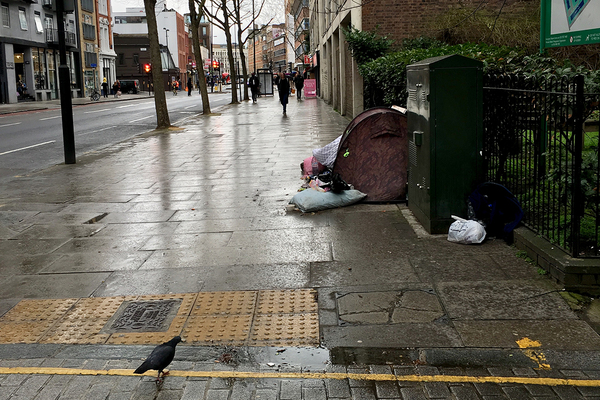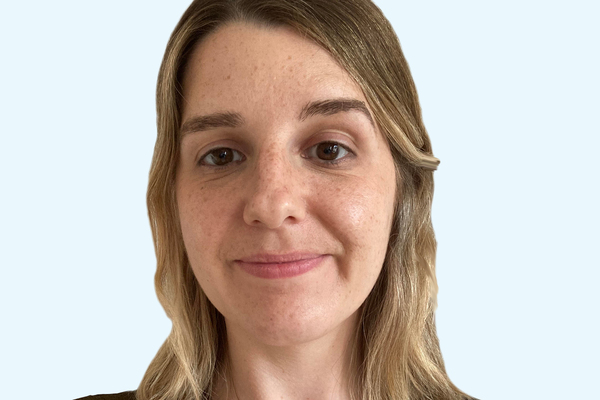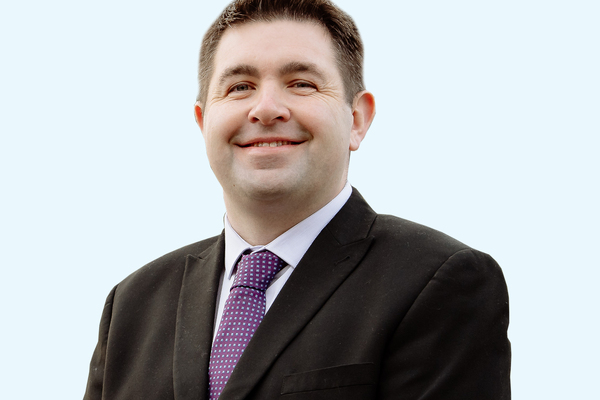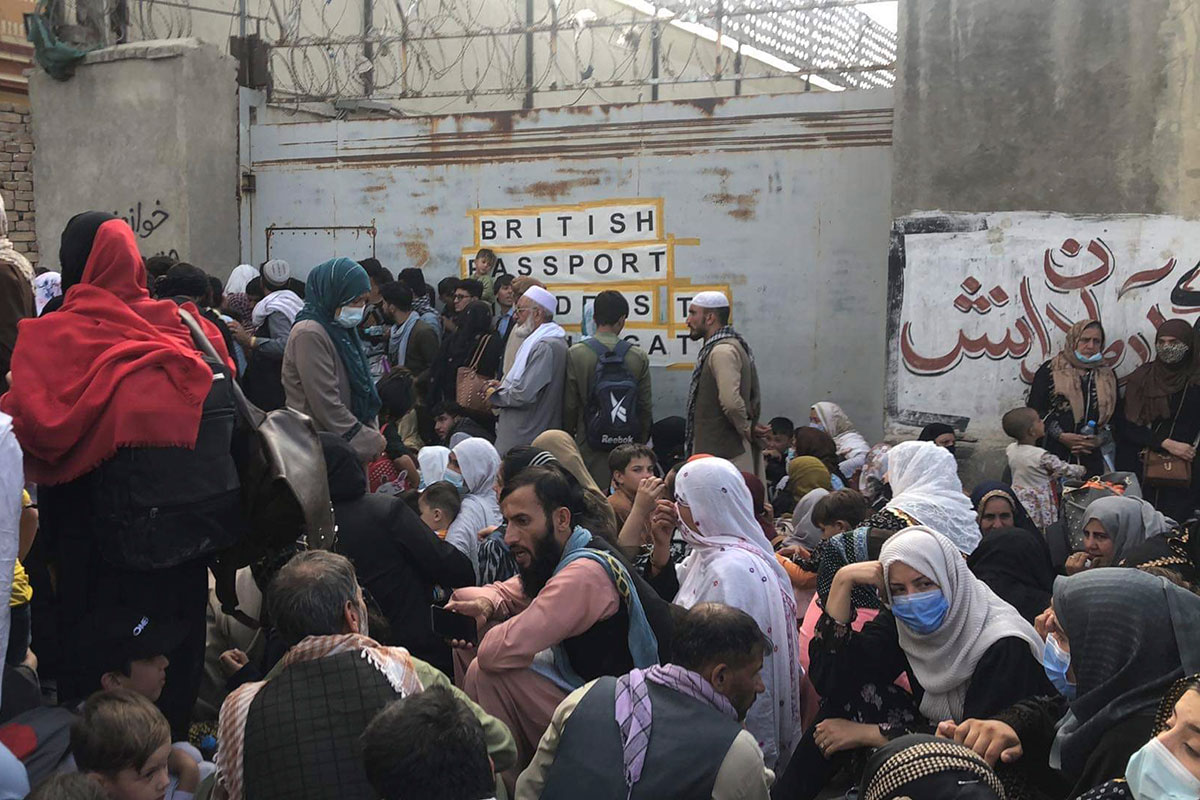You are viewing 1 of your 1 free articles
The IT specialist who fled Afghanistan
Siyar Zia works as an IT security analyst at a housing association. He is also one of thousands of Afghan refugees to flee the country when the Taliban retook power in 2021. He shares his story with James Riding. Photos courtesy of Siyar Zia
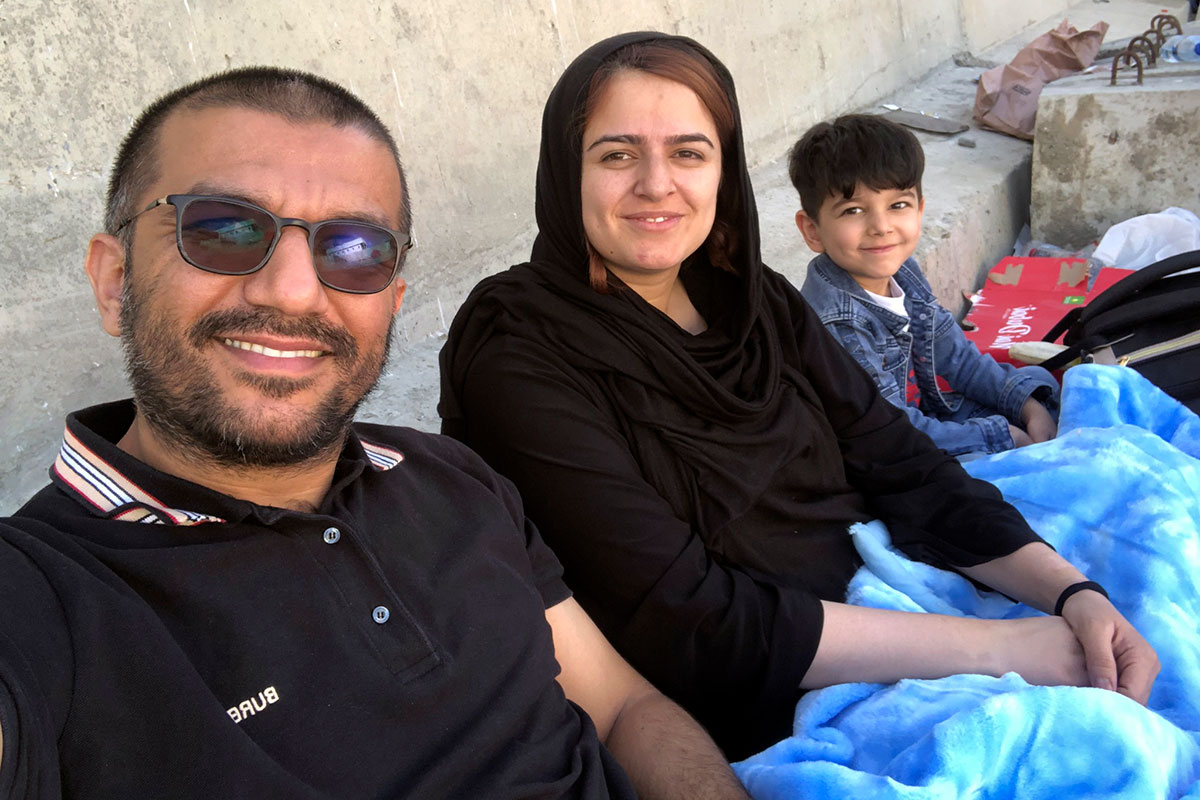
On 17 August 2021, two days after the Taliban declared victory in Afghanistan, Siyar Zia received a chilling phone call. “Make sure not to appear a lot on the streets [of Kabul],” the caller said. “Someone has compromised your name, so these guys are looking for you.” Mr Zia was calm. “Fine,” he said. “That’s expected.”
Mr Zia’s life was at risk because he was an IT specialist who worked for the collapsed Afghan government. So he engineered an escape to the UK using his formidable education, military training and contacts. After arriving in the UK effectively homeless, he and his family lived in a bridging hotel for two-and-a-half months before they were offered accommodation in Hampshire by housing association Sovereign. Now, as of September 2023, he works for the landlord as an IT security analyst.
How this accomplished figure built a new home in Britain from his upturned nation is an amazing story. It is a tale of life and death, hotel limbo, the power of an address and the support that a housing association can provide. With the UK Home Office planning to shutter the last Afghan bridging hotels this month, Mr Zia offers a unique perspective on his fellow refugees who are still waiting for housing to begin their lives anew.
Born into war
In stylish glasses, Mr Zia is composed as he recounts his past with warmth and serenity. “I was born and raised in war,” he says. Like many other Afghans, “from the time I was born until the collapse of Kabul, I never had an opportunity to say that I lived in peace”.
The events of 2021 were a brutal replay of late 1996, when the Taliban first took power. Back then, Mr Zia – then a child – and his family left the country for Pakistan. They returned in 2001, three months after the fundamentalist government was toppled following the US invasion, and stayed for the next 20 years. Mr Zia went to high school in Kabul, while his father worked in various senior government positions.
Between 2007 and 2015, the young Mr Zia moved to India to study, obtaining bachelor’s and master’s degrees from Kurukshetra and Kolkata, and attended cybersecurity seminars all over the subcontinent. But he knew he would return to Afghanistan. “My father, he was a patriot,” Mr Zia says. “He always held the opinion that you go, you study, you come back. That’s what you do for your country.”
Mr Zia started a PhD in India. However, in 2015, the Afghan government’s Office of the National Security Council reached out – it wanted to hire him as a cybersecurity analyst. He acted as a liaison officer with NATO forces in various policy and operational roles.
In 2019, Mr Zia came to the UK through a government scholarship. For 16 months, Mr Zia joined the UK’s Defence Academy in Shrivenham and did an advanced command and staff course. He also earned his second master’s degree in defence studies from King’s College London. “Those courses helped me a lot to understand the world, how business is run, how military forces work, how security works,” Mr Zia explains.
By September 2020, Mr Zia was back in Afghanistan, working with internal security forces for the Ministry of Interior Affairs and later as director of IT at the General Directorate of Protection and Security.
Then on 15 August 2021, the government collapsed. “I was very lucky,” he says. Some of the friends he had studied with at the Defence Academy [in the UK] were officers who had been on tours in Afghanistan. “They knew the geography and everything very well… they called me and said, ‘Whatever happens, be sure we are going to take you out of there. This is not safe for you.’”
They were right. But before Mr Zia could be evacuated, he would have to survive for 10 days in Kabul, living in various hideouts. It was at this point that he received the phone call informing him that due to his links to the old NATO-backed administration, he was on the Taliban’s hitlist. His wife and child went to stay with his in-laws.
Mr Zia explains: “I was the target. I had to move from place to place overnight, making sure not to stay in one place for two days.” Here, his military training “really helped”. Meanwhile, he liaised with his British officer friends, who secured and sponsored his evacuation.
With the Taliban controlling the whole of Kabul except the airport, there was only one way out of Afghanistan. The airport was surrounded as thousands of fleeing civilians rushed to catch a flight out of the country. Mr Zia calls it “that airport situation”. He estimates that more than 100,000 people descended on the airport. The British government was not expecting the crowds. Only 5,000 Afghans, Mr Zia reckons, were “legitimately people who were supposed to get on those planes; but that 95,000 people came for the hope that probably they will be able to grab something and put themselves at the back of the plane and then get lucky”.
Were he alone, Mr Zia muses, fighting his way through the crowd might have been easier. “But when you are holding a five-year-old child and with my wife, that was the most difficult situation.” The family arrived at midday after an email from their UK friend told them their names were on the evacuation list. “But we had to stay in a corner, just wait there, until the door opened up… In that crowd, we had to stay for about 13 hours.”
It was not until 1am, and many more frantic phone calls, that they could enter. “Once you were inside, then it was a whole difference. It was the difference between Hell and Paradise. It was just one door and that was everything – you go in, you’re safe now.”
At around 2pm, after completing biometrics and security checks, they were able to fly. The next day, 26 August, at midday, a suicide bomber set off an explosion that killed at least 170 people and wounded 150 more. “So we were lucky by only 12 hours,” Mr Zia states.
Mr Zia and his family flew on a C-17 military plane to Dubai, then to Birmingham, and finally to London. They were quarantined for 25 days (as coronavirus restrictions were still in place) in a Radisson Blu hotel, then moved to another bridging hotel in Southampton, where they stayed for two-and-a-half months. There, the Home Office arranged for all the resettled families to obtain National Insurance and NHS numbers.
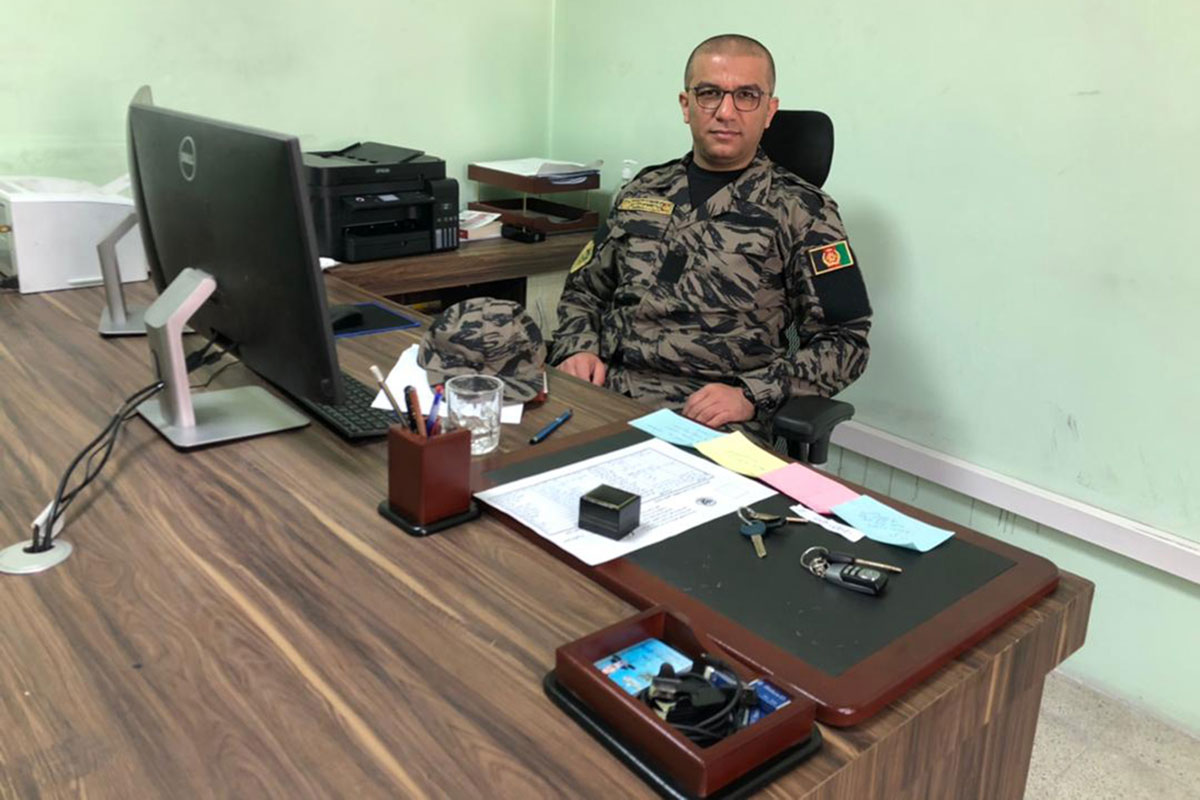
Mr Zia describes the bridging hotel as “a golden prison”. The setup was “luxurious”, but impermanent by nature. “That mentality of instability… it holds you back from doing anything,” he explains. “You cannot focus on self-development; you cannot focus on the future.” Also, cooking food in a hotel is tricky, and “we Afghans have the culture of eating at least two hot meals in a day”.
On 9 December 2021, the family moved into temporary accommodation in Basingstoke – operated by Sovereign and Basingstoke and Deane Borough Council – where they still live now. “An email was sent to my wife saying, ‘Congratulations, there’s an offer for you. This is your new address. Do you accept?’ It took maybe 30 seconds.”
His reasoning was simple. “In Afghanistan, we say a displaced person is not afraid of getting lost… You came with two backpacks, what do you expect? You’re getting an offer of a house, so just accept it.” He is proud of this choice. “That helped me with a lot of things,” he says. He got a fixed address and was able to start a job.
Some of the Afghans he arrived with are still living in bridging hotels, while “I’m almost two years ahead”. Now “we are established. I know the system. I got my driving licence; I have a car. I have a good job”.
Having set up in Basingstoke, Mr Zia started applying for jobs. He worked as the IT director for a small company in Portsmouth, then remotely for a small management consultancy.
His family adjusted well to life in England. “We always had a little bit of a Western life,” he says. “In 2015, when I got married, the first thing we did was get our own flat.” Now they have a small community in Basingstoke. “My son goes to school. He has friends and sometimes their families come to visit us, [or] we go to visit them. So we are mixed with society.”
When they arrived in the Sovereign accommodation, all their furnishings were donated by charities, such as the British Heart Foundation. Yet now, Mr Zia says proudly: “We returned back everything that we took from charity… and we got our own stuff. And this time we did it with our own money.”
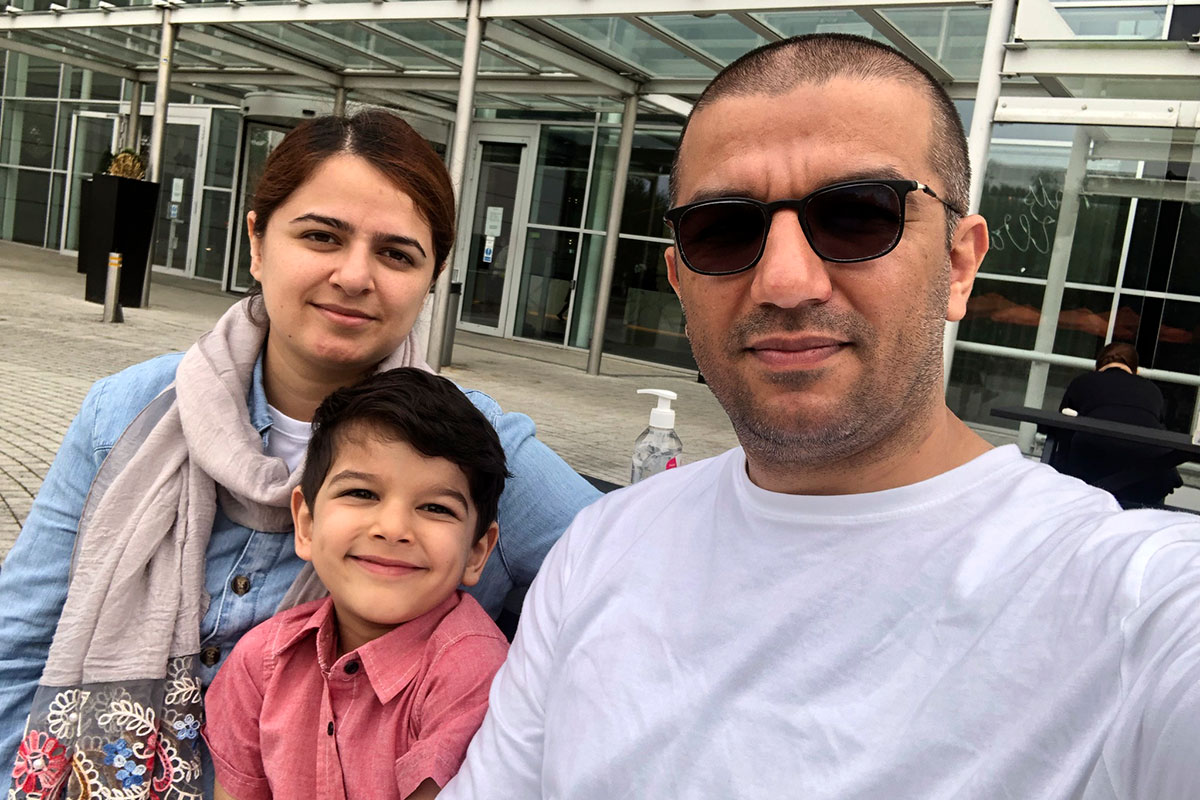
For refugees like himself, Mr Zia says the support offered by social housing is “like a live academy”. For example, applying for jobs: after receiving negative feedback on his applications, he discovered that “the way I present myself is wrong”. The employment and skills department at Sovereign “helped me to walk”, he explains. “Be prepared that you’ll be asked in an interview, ‘What are your weaknesses?’ In Afghanistan, if you ask this question, you’ll have an argument. Or, ‘What are your expectations for the company?’ In Afghanistan, the company is the boss.”
Job in housing
Of course, Sovereign got him his new job. Mr Zia is enthused to work for a company where “the end result is not about earning money… there’s a bigger picture. It’s a matter of humanity”. Working at Sovereign – which merged with Network Homes in October to become Sovereign Network Group (SNG) – when the matter of values comes into play, “everyone gets serious about it… This is making me excited and happy”.
Manager Stuart Collier, head of IT security assurance, says: “Siyar’s wealth of practical experience has proven indispensable in contextualising the guidance. Leveraging his expertise in IT security frameworks, he plays a pivotal role in assuring that Sovereign adheres to industry best practices in the development and implementation of new security controls, thereby fortifying our defences against evolving threats.”
Mr Zia is more than ready to move on to a permanent tenancy, but there are limited opportunities due to a lack of social housing.
The Home Office has imposed a 15 December deadline to eject the remaining Afghan refugees from bridging hotels. The Local Government Association has estimated that up to 1,000 Afghans face being made homeless as a result. What is Mr Zia’s advice to families still living in these hotels two years on? “I say, ‘OK, just don’t be stupid. Please go, accept whatever you’re provided.’”
Mr Zia is settled in the UK. But does he hope one day to return to Afghanistan? “If I never find a chance to go back there, at least I don’t have [regret] in my heart,” he states. “For that six years I worked within the government, I really did my level best.”
Yet, Mr Zia says that the second part of his life is now here, 3,500 miles away. “My daughter was born in the UK, she’s a British national… I have been well accepted inside the British community. My son has a good life here. My wife enjoys living here. So, yes, it is going to be a difficult situation when it comes to deciding where to go: to Afghanistan or stay here. But that is up to the future to decide.”
Sign up for the IH long read bulletin
Already have an account? Click here to manage your newsletters
